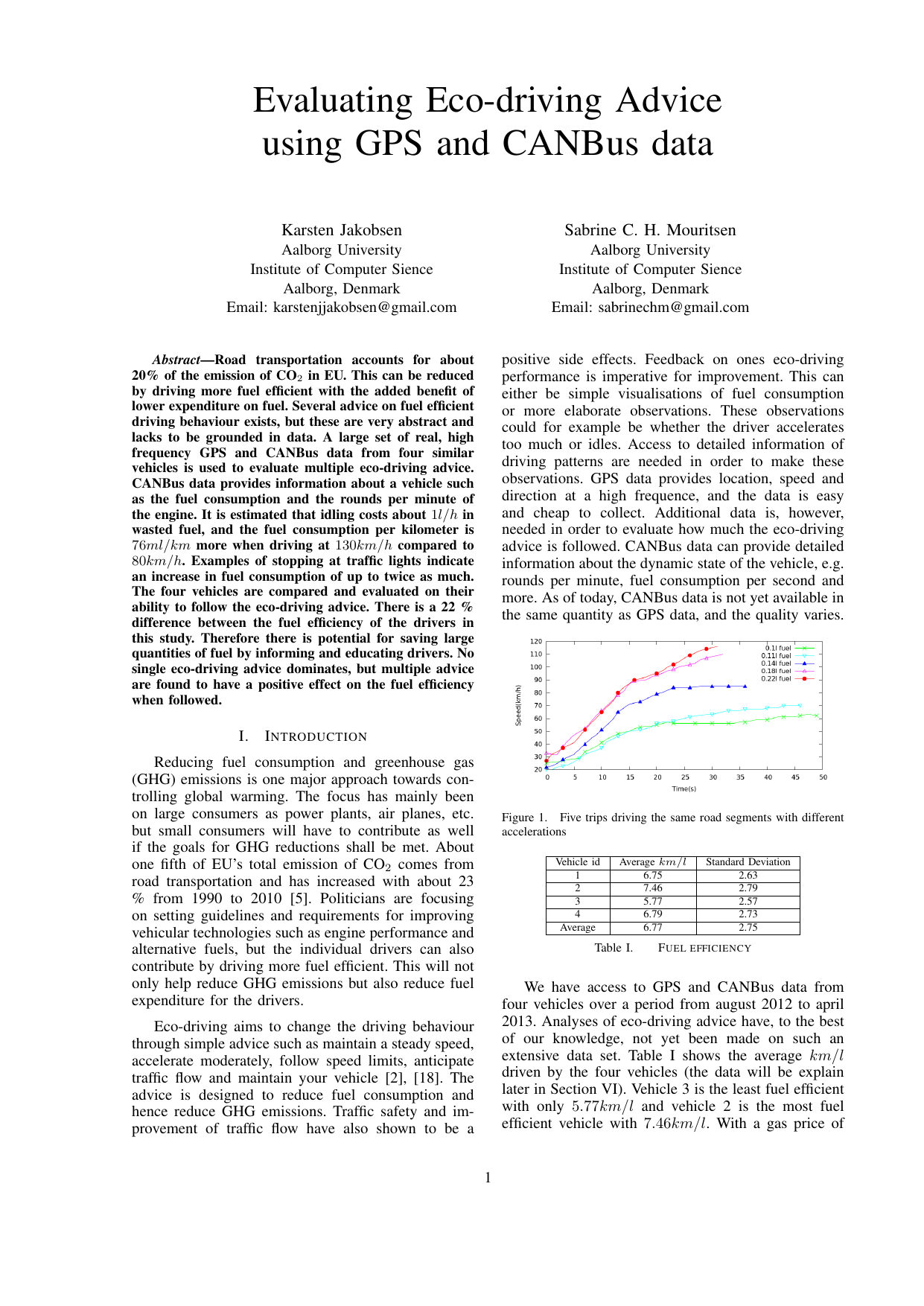
Evaluating Eco-driving Advice using GPS and CANBus data
Translated title
Evaluering af råd om økonomisk kørsel ud fra GPS og CANBus data
Term
4. term
Education
Publication year
2013
Submitted on
2013-06-06
Pages
20
Abstract
Vejtransport står for ca 20% af CO_2 udledningen i EU. Dette kan reduceres ved at køre mere brændstoføkonomisk og samtidigt kan der spares udgifter på brændstof. Der findes flere råd om hvordan man kan køre brændstoføkonomisk, men de er meget generelle og der mangler dokumentation for udformningen af disse råd. En stor mængde af højfrekvent GPS og CANBus data bruges til at sammenligne fire sammenlignelige biler og de evalueres på deres evne til at følge forskelige brændstoføkonomiske råd. CANBus data indeholder information om bilens tilstand, som f.eks. brændstofforbruget og motorens omdrejninger. Det estimers at det koster 1 l/t diesel at holde stille med motoren tændt og det kan koste op mod 76 ml/km hvis man kører 130km/t i stedet for 80km/t. Eksempler på at holde for rød i et trafik lys viser at det kan koste op mod dobbelt så meget brændstof som hvis man kører direkte over for grønt. De fire biler sammenlignes på deres evne til at følge rådene. Der er 22% forskel i brændstofforbruget mellem den bedste og dårligeste bil. Dermed er der potentiale for store besparelser ved at informere og uddanne chaufførene til at køre mere brændstoføkonomisk. Det er ikke kun et enkelt råd som dominerer, men hvis man følger flere af rådene ses en positiv effekt på bilens brændstoføkonomi.
Road transportation accounts for about 20% of the emission of CO2 in EU. This can be reduced by driving more fuel efficient with the added benefit of lower expenditure on fuel. Several advice on fuel efficient driving behaviour exists, but these are very abstract and lacks to be grounded in data. A large set of real, high frequency GPS and CANBus data from four similar vehicles is used to evaluate multiple eco-driving advice. CANBus data provides information about a vehicle such as the fuel consumption and the rounds per minute of the engine. It is estimated that idling costs about 1 l/h in wasted fuel, and the fuel consumption per kilometer is 76 ml/km more when driving at 130 km/h compared to 80km/h. Examples of stopping at traffic lights indicate an increase in fuel consumption of up to twice as much. The four vehicles are compared and evaluated on their ability to follow the eco-driving advice. There is a 22 % difference between the fuel efficiency of the drivers in this study. Therefore there is potential for saving large quantities of fuel by informing and educating drivers. No single eco-driving advice dominates, but multiple advice are found to have a positive effect on the fuel efficiency when followed.
Documents
